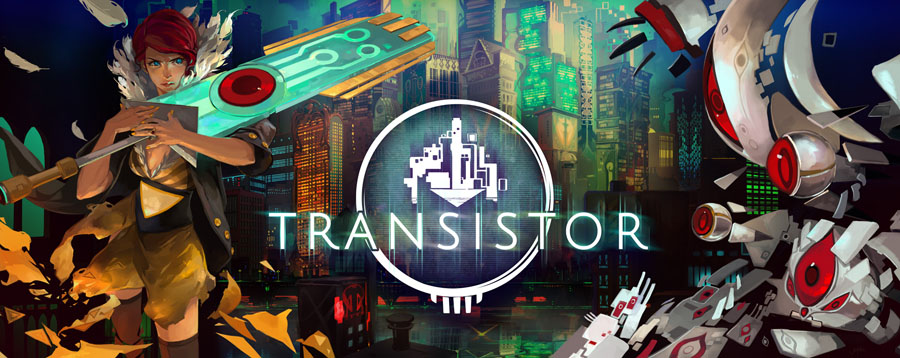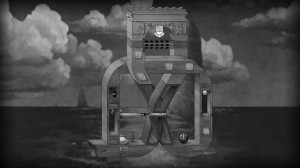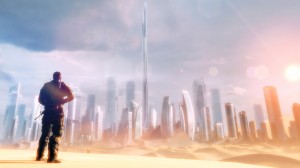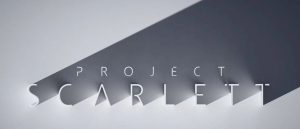Last Friday I got a chance to sit down with Greg Kasavin, creative director of the 2011 smash indie hit Bastion and now working full steam ahead on Supergiant’s newest title Transistor. We talked extensively about Transistor’s story, what the game has in common with Bastion and how it differs, and a lot about what it means to design games. Enjoy!
How are things going on development so far?
Pretty good! Finally returning to some sense of normalcy after an exciting few weeks.
What is the narrative style of Transistor and how does it differ from Bastion? Are we going to have real-time narration or is it going to be a unique creation for this game?
We have the whole team from Bastion working on Transistor, including Logan Cunningham, the voice actor who was the narrator from Bastion. From our point of view, the way in which Transistor’s story unfolds is very different to us, and presents its own challenges and opportunities. Basically the key difference is that it’s a character who is with you for the events of the game. He is kind of discovering the events along with you as you go, as opposed to in Bastion where you have this kind of omniscient sounding narrator who is holding back a lot of information, and the story is unraveling as you go and telling the tale of your journey as you make progress. So this time around, it’s someone who is along for the ride.
We have this pairing of characters. We have Red, the protagonist character, this woman who has literally lost her voice and she finds this extraordinary weapon called the Transistor, which contains the consciousness of this speaking character who has been reduced to only a voice. We liked the idea of that kind of partnership and developing that relationship over the course of the story.
That sounds incredibly interesting. They kind of depend on each other.
Yes, that’s exactly right. They very much do. The guy who’s trapped inside the Transistor, there’s not a whole lot he can do [Laughs], which creates some kind of fun dynamics in terms of the kind of relationship that the characters have. From what people played hopefully we it came across that the speaking character cares very much about Red and he wants to make sure that she Is gonna be alright, but there is only so much he can do. He knows the city very well and things of that nature, but he kind of needs to go along with what she decides to do, not by choice but by necessity. That’s a fun dynamic for us and we’re still exploring all the different ways we can do interesting stuff there.
So he’s kind of a hero in chains.
Yeah. It’s very much the player’s story, we feel, similar to Bastion. I think our high level goals for the story are similar to Bastion. We want to surprise players. We think surprise is a key component to an interesting story. We also want to make sure the story feels very personal to you, maybe not straight from the beginning, because it’s a specific character in a specific situation, but by the end we hope that players will become more invested in the events and the world. I think that’s what can make game stories so powerful is the sense that you are the driving force of this story, you’re not just a spectator. It’s very important to us to let players interact with the situation and not just feel like they get a reward cut scene every few minutes or something like that.
The initial statements from around the industry have been overwhelmingly positive. When you started designing this, did you start with the story idea or was it more of a gameplay thing first?
That’s a good question. It’s very chicken and egg for us. We do see ourselves as a gameplay driven studio. We don’t come up with stories and retrofit gameplay to suit those stories. Quite the contrary, we develop gameplay ideas and experiential ideas and come up with narrative that can sort of tie it all together. So in the case of Transistor, we did have ideas around this type of character pairing that I was talking about before. But it wasn’t even necessarily in a science fiction context that you see in what we’ve shown. It was just kind of a broader idea, and along with that we had a lot of thoughts on the kind of gameplay direction we wanted to take, wanting to do something that maybe felt more deliberate and had more drama from moment to moment as opposed to the very fast-paced action packed feel of Bastion. We still very much want a fast-paced, easy to pick up and play kind of feel in this game, but we wanted to see if we could introduce more tension and suspense into the moment to moment gameplay. That sort of evolved into this more strategic combat system that we’ve developed. So those things combined, and some of the early narrative ideas, that in turn motivated us wanting to create a whole new setting and a whole new world for this game. The world building aspect of Bastion was something that was really fun on that project, like the part where we created our own fiction for it and all that, and it was a well-regarded part of the game. SO we wanted to see if we could do that again, really, and let’s try to make a whole other world from scratch and see what people think.
So kind of like Red and Transistor depend on each other in a circular manner, it’s kind of interesting how the game story and the game design kind of tend to feed each other in a similar way.
Yeah, that’s absolutely the case for us. We think that the deep connection between those things is crucially important and we spend a lot of time just sort of trying to maneuver those things, especially the narrative, to align with the gameplay as closely as possible thematically. One of our high level design goals on Bastion and I think on Transistor as well is we just want the game to feel complete, like every aspect of it just fits. No vestigial little elements or anything, no tacked on features, it’s just all part of a cohesive whole. Just making sure that the narrative and the play experience are closely aligned, and you feel like everything you’re doing is in the service of some thematic core of the experience, something like that, which could happen subconsciously for players. It’s important to us.
The way Bastion felt when I played it, it really hearkened back to a lot of the old school kind of titles when games didn’t have these monumental production tasks. You know, Assassin’s Creed is great, but it is never going to be as easy to implement a story in that as it is something more scaled down graphically. It really did feel complete for that reason.
Yeah, that’s great, I mean we do think of it sometimes in those terms. I often feel like the game industry took a pretty dramatic turn kind of in the later nineties when the PlayStation rolled around. There was all this knowledge of experience around building really terrific 2D games. There was stuff like Super Metroid and Chrono Trigger, and any number of these games that are regarded as classics from the 16-bit era. But it seemed like a lot of that knowledge had to be thrown out, and now people have to learn 3D cameras, basically having to relearn everything about game making now that everything is in 3D. I like to think that some of the stuff we were doing is almost like, in that older tradition, if people kept making games in that tradition what would they be like today with somewhat more modern storytelling techniques and some of the technological improvements that are available now. But yeah, for the most part it’s easier to trace back our work to stuff like that than a fully 3D action adventure game or something. I still love a lot of those old games, and I miss the feel of them and even the way they told story and stuff like that. I think we’re not the only ones working in that kind of tradition. I’m glad there’s stuff like that out there again, where for a while it seemed like only 3D blockbuster experiences that can feel a little monotonous after a while.
Yeah, it can. The indie movement and Bastion in particular have done a lot to bring back that feeling. Having said that, in Transistor is it going to be a similar feel to that do you think? Or do you want to push a head a little more as far as exploring new emotional territory in a game?
Oh yeah, I mean, absolutely. I think, you know, what I say about it is that it’s really important to us that the game has its own identity. It’s certainly no accident that we kinda went ahead and tried to create a whole new setting and a whole new premise. A new gameplay direction. Something that we were really happy about coming out of PAX East, when we let people play the game for the first time, was the response to the gameplay. People told us that they felt it was really different and felt fresh. That made us really happy because it feels very different to us and introduces a whole new set of interesting design challenges as we create encounters. But you never really know until you put it in the hands of other people. In the same way the play experience, we think, is quite different even though technically its maybe part of the same action RPG genre. I think from a narrative point of view, this game should feel quite different as well, apart from the fact that this game, like Bastion before it, the narrative will be an important part so that’s something that the games have in common. Hopefully it gives some sense of the experience people will be in for, but at the same time I think our job is to surprise people which is an interesting challenge this time around. I think Bastion had kind of a dark horse advantage in the sense that we were an unheard of studio and no one knew what to expect from us at all. And this time around, people who have played Bastion, they may think they know what our tricks, are as it were, so it’ll be interesting to see if we can surprise them yet again. But again, the initial response to this game suggests that hopefully we’re onto something and it’ll feel sufficiently surprising and fresh if not more than sufficiently so.
So with the combat system being more strategic, did you have any ideas that were inspired by Bastion or springboarded off of them? Or is this a complete fresh start?
Yeah, it’s sort of indirectly in response to Bastion in the sense that, having worked on Bastion, we wanted to try something different. Our design goal around the combat in Bastion was to sort of reward playing with finesse and have lots of satisfying timing-based mechanics and let people kind of find their own play style within that, and have different weapons with a lot of character and distinction, so we were happy with how that panned out. But rather than just keep pushing in that direction, we wanted to see if we could do something new. Several of us, myself included, come from working on real-time strategy games, and we all love classic turn-based gamed and tactical RPG’s, so we thought about that style of play and we sort of decided pretty quickly that we didn’t want to make a straight-ahead turn-based game because that didn’t line up with the kind of narrative goals we had in mind, and just the kind of experience we wanted. But we still wanted to see if we could capture the character strategic games within the context of an action RPG, and like I mentioned before just get the drama of some of that across, because in a game like Bastion, when you get very good at it, the encounters tend to get solved very quickly. You could just blaze through fights, just play very effectively and that’s sort of your reward for getting good at the game. And here we wanted to see if we could capture more of a sense of ebb and flow to the battle, where you could kind of quickly turn the tables on your enemies and vice versa. Sometimes they can turn the tables on you. It’s more of this cat and mouse game. As we explored that further, we really liked where it was going and we introduced this ability early where you could essentially stop everything besides yourself and plan your next set of actions, then execute them in a supercharged fashion. We found we were all using that ability in different ways, and that’s I think when we felt we were really onto something that started to feel very deep and open ended. That’s kind of what we wanted out of it.
Going back to Bastion a little bit. The last time I fired I heard an interesting phrase from Rucks. When the game started up it said “I’ll see you in the next one.”
Yeah, that’s when you start the New Game Plus mode.
Oh okay, so this isn’t a sequel tease or nothing like that?
No. [Laughs]
Dang it!
I wish I didn’t say no in the sense that I don’t like to discredit people’s theories, because I think in Bastion we tried to answer a lot of question and tried to build toward a satisfying conclusion. But I think part of what makes fictional universes interesting are the parts that are left open to the imagination. But yeah, in the case of Bastion there is an implied sense of continuity in the new game plus mode. The line “I’ll see you in the next one.” was not written in anticipation of Transistor for what that’s worth.
Anything else you’d like to talk about today as far as where you’re at in development?
It’s pretty early right now. It’s in a pre-alpha state, so what we showed at PAX East recently is kind of our first time we had something we felt was showable and we really wanted to put it out there to see what people thought before we go down further in this particular rabbit hole. The response has been really terrific. We’re just really really grateful for that, because it makes it that much easier for us to push forward with the confidence that people like what they see of it so far. The pressure for us is a very good one, of just trying to create something that lives up to the promise that people have seen in it, and there was a similar feeling on Bastion so that definitely help me through the days and weeks because we haven’t always worked on games that people are excited about. It could be pretty rough working on something like the people out there don’t think is going to be anything worthwhile, so it’s good to have this type of pressure instead. We plan for it to come out sometime hopefully early next year, so we’ve got a ways to go, but we will try to keep everyone posted on how it’s going. We always appreciate the feedback and the questions on everything.
So with your design stages, how long did it take you to get to the pre-alpha stage?
It’s been a little over a year in development, though it’s kind of hard to measure on this particular project because we actually spent a lot of time last year still working on Bastion stuff. We released the iPad version of the game, which was a pretty intensive project. Only since the Fall of last year we’ve been working on Transistor with a whole ten-person team full speed ahead. At the same time it was really good to have a good amount of time for some of the core ideas, the narrative and the aspects that are designed for that, just to stew for a while, because linear time can really help when it comes to just generating early ideas. It’s impossible to schedule when you’re going to have a good idea for something. You could get writer’s block or whatever, start twirling around not sure where to go when you have an open-ended goal. So it’s been good having some of this other Bastion stuff just to give us some distance from this project so when we’ve come back to it we’ve been able to make good progress, and now we have a much stronger sense of where we’re going with it and are mostly in that mode where we just need to build out the rest of it, which is kind of a more comfortable problem having to just build the whole game than it is to just go “Well, what are you gonna do next?” and just total blue sky. The blue sky stage can be fun, but something about it very daunting as well. You could do ANYTHING, so what are you going to do? But that’s my own take on it. I feel different levels of anxiety about all different stages of game development.
I can imagine. Being creative people, we’re kind of our own worst critics. We kind of create our anxieties if the fans don’t create them for us.
Yeah, that’s for sure. We really appreciate the support and that people are keeping an eye on us. We’ll do our best to live up to what people have seen in this thing so far.
Thank you very much for your time, Greg. It’s been a very big honor to finally meet you.
Thank you very much!




